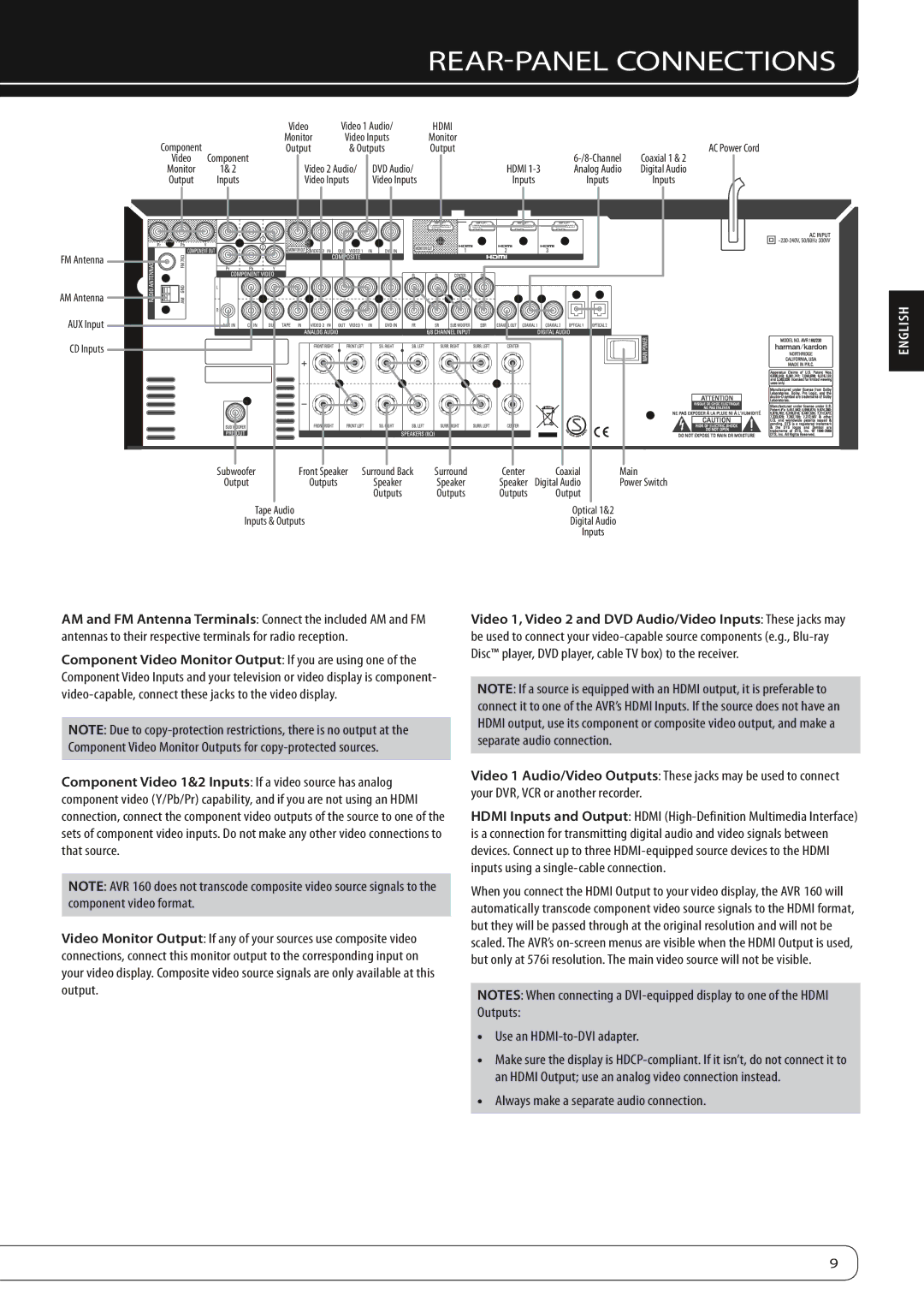AVR 160 specifications
The Harman-Kardon AVR 160 is a versatile and powerful audio/video receiver that delivers a remarkable home theater experience. Designed for audio enthusiasts and casual listeners alike, this model combines cutting-edge technology, sophisticated design, and intuitive controls.One of the standout features of the AVR 160 is its robust 7.1-channel surround sound output, which supports the latest audio formats including Dolby TrueHD and DTS-HD Master Audio. This allows users to enjoy a truly immersive sound experience when watching movies or playing video games. With a total power output of 75 watts per channel, the AVR 160 ensures that every sound detail is crystal clear, from explosive action sequences to the softest dialogue.
Another significant aspect of the AVR 160 is its advanced connectivity options. It comes equipped with multiple HDMI inputs, allowing you to connect a variety of devices such as Blu-ray players, gaming consoles, and streaming devices. The HDMI 1.4 version support ensures compatibility with 3D video and offers audio return channel (ARC) functionality, simplifying connections with your TV. Additionally, the receiver features wide compatibility with legacy devices through analog audio inputs, as well as USB ports for direct playback of your music collections.
The AVR 160 also includes Harman's proprietary technology, like the EZSet/EQ automatic speaker calibration system. This feature effortlessly optimizes speaker performance by analyzing the acoustic properties of your room and adjusting settings accordingly. Users can also benefit from the integrated SiriusXM and Spotify support, allowing streaming of music directly through the receiver.
In terms of design, the AVR 160 presents a sleek aesthetic that complements any home entertainment setup. The minimalist front panel, with its bright display and easy-to-use controls, makes operation straightforward. Whether you are adjusting settings or selecting inputs, the receiver’s user-friendly interface enhances the overall experience.
In conclusion, the Harman-Kardon AVR 160 is an exceptional receiver that boasts remarkable audio quality, extensive connectivity options, innovative technologies, and a stylish design. Whether you're a movie enthusiast, music lover, or gaming aficionado, this receiver is well-equipped to meet diverse entertainment needs and elevate your audio experience to new heights.

